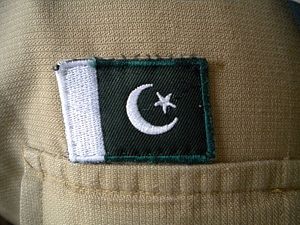On Sunday, the Pakistani Army, under new Chief of Army Staff (COAS) General Javed Qamar Bajwa, appointed Lt. Gen. Naveed Mukhtar as the director-general (DG) of Inter-Services Intelligence (ISI), Pakistan’s military foreign intelligence service. Mukhtar will replace Lt. Gen. Rizwan Akhtar in the post. The personnel shift marks one of Bajwa’s first significant decisions since himself succeeding Gen. Raheel Sharif as COAS at the end of November.
Rumors that Akhtar would be replaced under a new COAS had circulated in the weeks leading up to the Sharif-Bajwa succession. Both Akhtar and Mukhtar share a common background — both men ascended to the role of DG ISI from the corps commander post in the port city of Karachi. According to Dawn, “Mukhtar possesses a vast experience in the field of intelligence,” and has experience in counterterrorism, having led the primary counterterrorism wing of the ISI in Islamabad.
Little is known about Mukhtar’s broader plans for Pakistan’s secretive ISI, but over at the Hindustan Times, Rezaul Laskar picked up on a thesis Mukhtar wrote while at the U.S. Army War College on exchange. “Pakistan’s past, present and future is closely linked with Afghanistan. A peaceful, united and stable Afghanistan is critical for Pakistan’s security and is a top policy objective,” he wrote in that thesis, entitled “Afghanistan – alternative futures and their implications” (PDF).
“At the same time, Pakistan needs to prevent the opening of another hostile front should Afghanistan emerge as a proxy for India. Consequently, Pakistan will closely follow India’s efforts to influence Afghanistan and may take aggressive measures to undermine India’s efforts in this regard,” he added.
Pakistan’s ISI is particularly notorious in Afghanistan and India for its support for covert and terrorist activities across international borders. While the ISI’s activities in both neighboring countries has been long a closely watched subject in the region, it has come under additional scrutiny recently following testimony by David Headley, an American-born “scout” for terror group Lashkar-e-Taiba ahead of the deadly November 2008 terror attacks in Mumbai.
Mukhtar inherits the ISI from Akhtar at a complicated time. Tensions across the Line of Control delineating India-occupied Kashmir from Pakistan-occupied Kashmir are at new highs following a summer of unrest in the Kashmir Valley. Additionally, as Pakistan’s Dawn revealed earlier this fall, Pakistani civilian leaders have stressed to Pakistan’s military that the country’s support for insurgents and terrorists must end, allowing Pakistani law enforcement to take action against domestic groups.

































